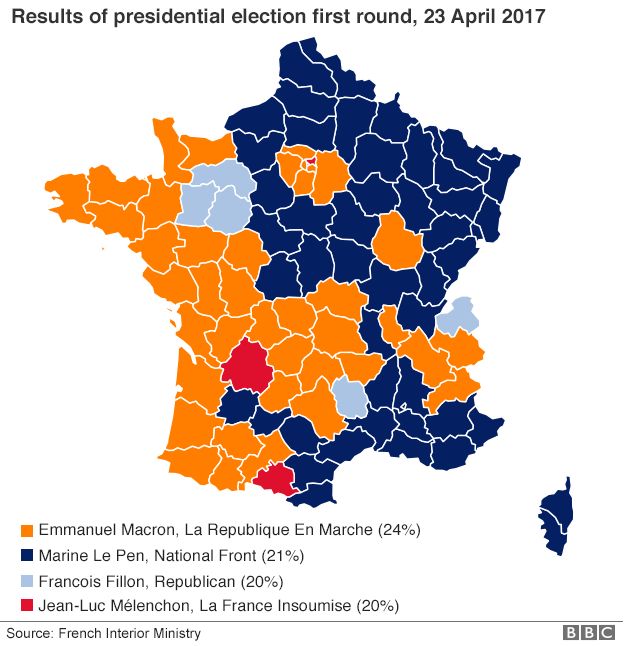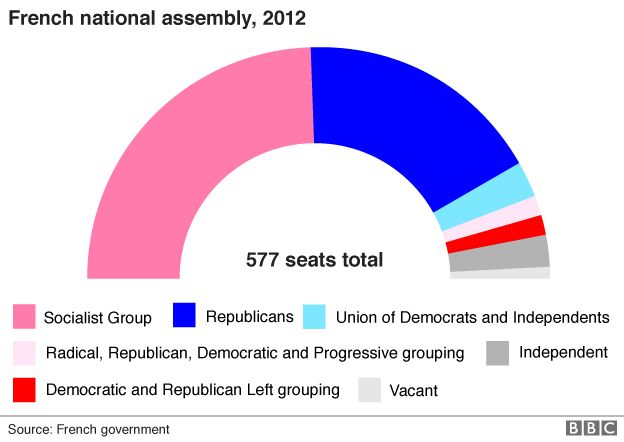French election: Can Macron's new party win majority he needs?
 AFP
AFP
He swept aside all his political rivals to claim the presidency in May, but President Emmanuel Macron has done only half the job.
Never elected before, he leads a party with no MPs and seeks a similar upheaval in France's National Assembly to push through the changes he promises.
French voters return to the polls in a two-stage parliamentary election on 11 and 18 June.
So can he do it?
The polls say he can. They consistently give Mr Macron's La République en Marche (LREM) a clear lead over his rivals.
Recent polls suggest LREM may attract 30% of the vote, well ahead of the centre-right Republicans and far-right National Front (FN). Significantly, that would give him at least 330 of the National Assembly's 577 and possibly far more.
Voters across the country want to give Mr Macron the leeway to implement his agenda, Philippe Marlière, professor of French politics at University College London, told the BBC.
His party already has a boost from early first-round results abroad, where LREM candidates came first in 10 of the 11 overseas constituencies. The yellow-shaded areas of the map below show the areas where he beat his political rivals in the first round of the presidential election.

- Macron: Birth of the anti-Trump?
- What are Macron's policies?
- In maps: How France voted in the presidential poll
How does the election work?
The poll to select 577 deputies in the lower house of parliament is held over two rounds, the same as the presidential election.
Thousands of candidates take part in the first round, and anyone who secures 50% of the constituency vote on a minimum turnout of 25% will win in the first round.
Otherwise, the vote goes to a run-off in which any candidate with at least 12.5% of the vote can stand. That differs from the presidential vote, where only the top two candidates go through.

While the system gives France's 47 million voters the chance to vote for their favourite without tactical considerations in the first round, ultimately it favours big parties, says Prof Marlière.
LREM needs 289 seats for a minimum absolute majority.
If, as the polls suggest, the National Front attracts around 18% of the vote, it will do well to win 15 seats in the Assembly. And this is a party that came second in the presidential election with 10.6 million votes.
That is because, as in the UK, the winner in each constituency vote takes all. In the last vote in 2012 it won just two seats.
Comments
Post a Comment